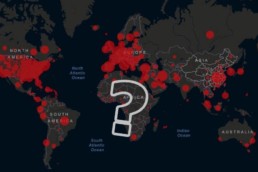(At the top of this text, the representation of « Manifest Destiny » – Reverse photo)
Cowboy movies key to understanding these American obsessions
United States: Defending property and possession of firearms – Image of the pioneer, lost in the western plains, alone with his large family, watching at night for suspicious noises… In the dark forests, « Indians » are there. The settler, ambushed at the window of his wooden house, his Winchester in hand, will defend his family and his land from the savages. He’s the hero!
His land? Taken from the Indian tribes
The narratives of women raped, horribly scalped and killed by the Indians, abducted children… Images to cast fear and create a curtain of smoke on the major stakes of this inexorable advance of settlers to the West by the expropriation of land.
It should be noted that in this table, the State is absent
The sheriff testifies to this absence, since it constitutes an institutionalized local self-defense. He is elected by the villagers.
The films « Little Big Man » and « Dancing with the Wolves » give a partial counterpoint to this adventure. They present the point of view of the Indians, narrated by a white « past on the other side ».
Washington, Georgetown
Wouldn’t the American obsession with the inviolability of private property and the constitutional guarantee of owning weapons stem from this fear of one day having to be held accountable for these thefts? This original violent predation as a pent-up « primitive scene »?
« Manifest Destiny » and « Chosen People »
To support the imaginary justification for this predation of the land, the Anglo-Saxon pioneers who were advancing in the land invented the myth of the « Manifest destiny of the American people. » A march westward led to the rubble of Indian tribes. They have thus self-instituted the « right to violate the rights of others. » A right that distinguishes the American people from other peoples. A belief that has left its mark on the way Americans view their position in the world. For some of them, it is a right granted by God.
One immediately thinks of how Israeli leaders base their predation of Palestinian lands on religious law, on biblical arguments. And also for all those who, in Israel and elsewhere, invoke themselves as the « Chosen people » (by God).
April 2010 in Virginia. At an event of the organization that defends the right to bear arms in the United States, a banner proclaimed, « We hold our rights to God, not the state. »
Economics arguments too
I no longer know which American economist I have read a text that says expropriation can be justified if the exploitation of the assets thus acquired leads to an increase in productivity. There was no explicit mention of this capture of the lands of the American Indians. But this assertion may obviously concern land taken from the American Indians, productivity being understood in the commercial sense. We have here an economic and non-religious justification for the predation of the land.
The American nation was founded on the theft of land and labor
In addition to capturing the land, the Americans also captured work (and human lives). By going to Africa to get the work force and turning it into slaves. Thus, stolen land and labor formed the foundations of American democracy. And the power that this nation has forged to become the absolute master of the world.
Democracy thus goes hand in hand with colonization and slavery. This is what Achille Mbembe says (« Politics of Enmity » – The Discovery, 2016).
Amsterdam and Indonesia in the 17th century
Panikkar, an Indian historian and India’s first ambassador to France, said nothing else. The Dutch, in the middle of the Golden Age, were at the forefront of the defence of political and civil freedoms in the 17th century in Europe. At the same time, they colonized Indonesia with immense brutality. And they deported millions of Chinese made slaves to their colonial operations in the archipelago.
Karl Polanyi and the commodification of land, work, money
It is on the commodification of these factors, work and land, that Polanyi bases the transition to market capitalism. He added the money, which was also turned into a commodity.
& & &
This article is the translation of « USA : Défense de la propriété et Détention d’armes feu » ==> ICI
See the evocation of « Manifest Destiny » in the Reading Note on the Work of Cornelius Castoriadis => HERE
Also on the Manifest Destint » ==> HERE
See K. M. Panikkar « Asia and Western dominance from the 15th century to the present day« . NY, 1955 ==> HERE



